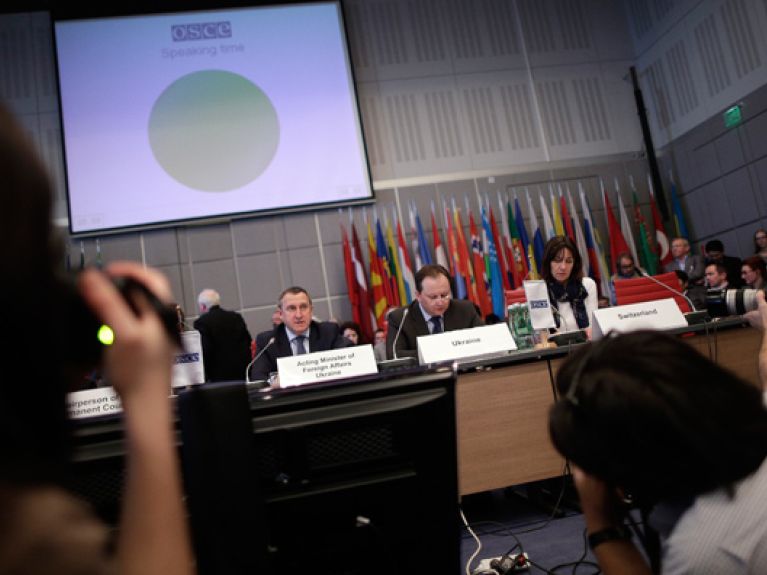German engagement in the OSCE
The Organization for Security and Cooperation in Europe (OSCE) has come into focus again with the Ukraine crisis.

It began with the desire for détente in Europe: when the predecessor of the OSCE was founded in the mid-1970s, the divided continent had already overcome the years of sharp confrontation in the East-West conflict. With the signing of the Final Act of the Conference on Security and Cooperation in Europe (CSCE) in Helsinki, the basis was created for a full-fledged organisation for security and cooperation. In the Helsinki Final Act the post-war borders were recognized and, among other things, the states pledged to respect human rights and pursue the peaceful settlement of disputes. At the time, Germany was still divided by massive border installations. Both German states, the Federal Republic of Germany and the German Democratic Republic, were among the signatories in Helsinki.
Since the fall of the Wall in 1989, and reunification in 1990, Germany has continued its active engagement for security co-operation into the 21st century. The Federal Republic participates significantly in the organization both financially and with personnel. In 1995, the CSCE conference officially became the OSCE organization. All European countries, the Republics of the former Soviet Union, the USA and Canada work together in the organization. Altogether there a 57 participating states and eleven partner states. The comprehensive approach to security covers the politico-military, the economic and environmental and the human rights dimensions.
The Federal Government is counting on the OSCE mission
One of the OSCE instruments is the deployment of observers. The German government pressed for an OSCE monitoring mission from the beginning of the Ukraine crisis in order to pave the way for a diplomatic solution. At the end of March 2014 the OSCE Permanent Council decided to establish a six-month mission to the Ukraine. It initially includes 100 observers and can be expanded to include a further 400 observers. Among other things its task is to gather information on the security situation. The observers are also required to establish and report facts on specific incidents, for instance when OSCE principles are violated, especially where minority rights are concerned. The mission members can take action by contacting authorities at all levels, as well as societal forces, to facilitate “dialogue on the ground to promote normalization of the situation.” Germany is supporting the mission with around one million euros, divided more or less equally between projects and the sending of observers.

